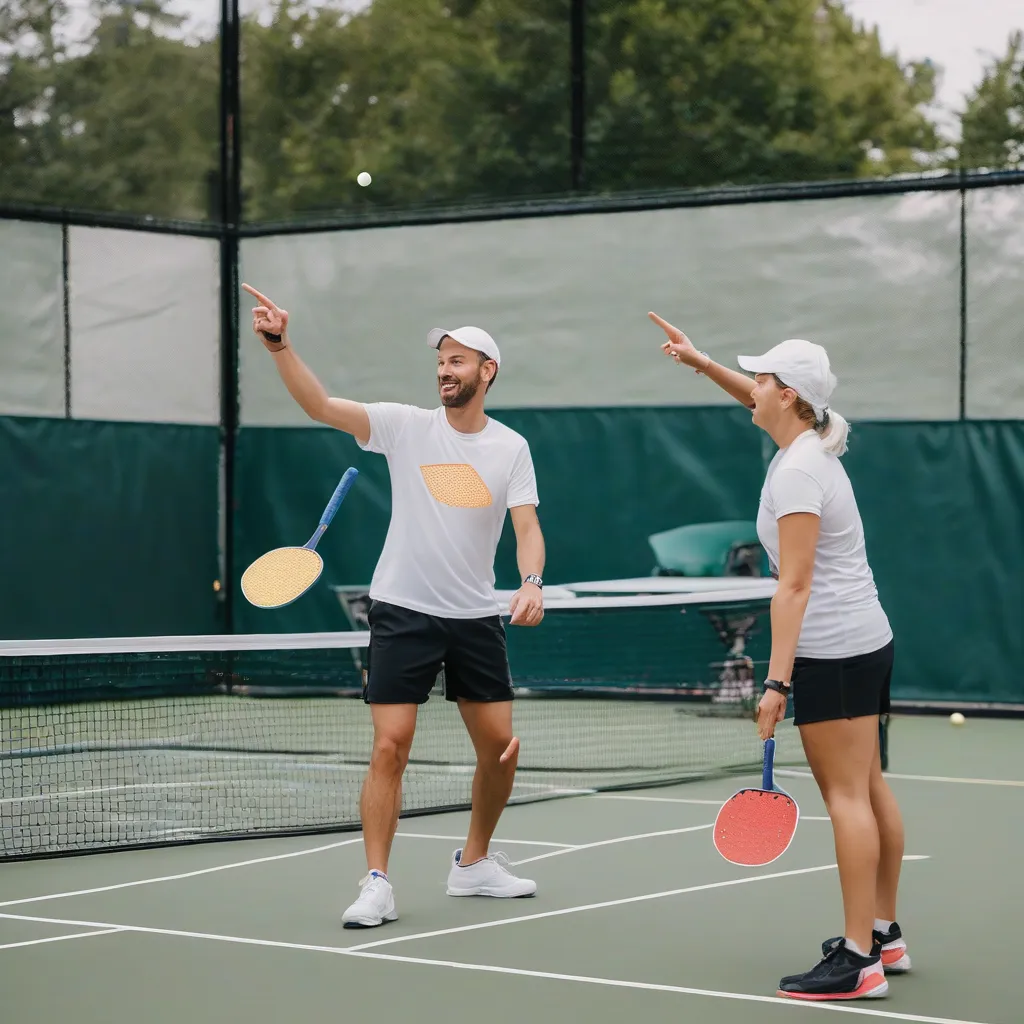Imagine this: you’re at the net, ready for the put-away, your partner’s covering the backhand side, and suddenly, the opponents lob. You both hesitate, unsure who should take it, and the ball drops right between you. Sound familiar? This common scenario highlights the critical role of communication in pickleball doubles. Mastering essential communication skills can be the difference between winning and losing, transforming frustration into seamless teamwork.
Why Communication is Key in Pickleball Doubles
Pickleball doubles is a fast-paced game that demands quick thinking and coordinated movement. Effective communication bridges the gap between individual players, creating a unified force on the court. Without it, you’re essentially playing two singles matches simultaneously, vulnerable to opponents exploiting the gaps in your coverage.
Essential Communication Skills
Calling the Ball
“Mine!” “Yours!” “Got it!” These simple calls can prevent collisions and ensure someone takes responsibility for every shot. Establish a clear system with your partner. For example, the player on the forehand side typically takes balls down the middle. Constant communication avoids confusion, especially in chaotic rallies.
Signaling Intentions
Beyond calling the ball, communicating your intentions elevates your doubles game. A quick “switching!” alerts your partner to your movement, allowing them to adjust their position. Signaling your intent to poach also allows your partner to cover your area. This proactive approach reduces errors and increases opportunities for aggressive play.
Non-Verbal Communication
Not all communication is vocal. Eye contact, hand signals, and even body language can convey crucial information. A nod, a pointed finger, or a quick glance can signal a poach or a switch. Developing these non-verbal cues adds another layer of synergy to your partnership.
Staying Positive
Maintaining a positive attitude, even when mistakes happen, is crucial. Encouraging words like “Good try!” or “Next one!” can boost morale and prevent negativity from affecting your game. Pickleball is a game of momentum, and a positive attitude can swing it in your favor.
Strategic Discussions
During timeouts and between points, take the opportunity to discuss strategy. Analyze the opponents’ weaknesses and adjust your game plan accordingly. “They struggle with deep returns, let’s focus on serving deep.” These quick conversations can make a significant impact on your overall performance.
Common Communication Mistakes and How to Avoid Them
Over-Communicating
While communication is vital, too much can be distracting. Limit your calls to essential information to avoid overwhelming your partner.
Negative Talk
Criticizing your partner or dwelling on mistakes creates a negative atmosphere. Focus on solutions and encouragement instead.
Lack of Clarity
Mumbled calls or vague signals lead to confusion. Ensure your communication is loud, clear, and concise.
Ignoring Non-Verbal Cues
Pay attention to your partner’s body language and non-verbal signals. This enhances your understanding and anticipation on the court.
 Pickleball Doubles Communication
Pickleball Doubles Communication
Practicing Communication Skills
Like any skill, communication in pickleball improves with practice. Dedicate time during drills and practice matches to focus specifically on communication. Run scenarios, simulate game situations, and provide feedback to each other. The more you practice, the more instinctive and seamless your communication will become.
Advanced Communication Techniques
For experienced players, advanced communication techniques can further enhance your game. Develop a system of coded signals for specific strategies or shots. Use subtle hand gestures to indicate a fake or a drop shot. These advanced techniques can give you a significant edge over opponents.
Conclusion
Effective communication is the cornerstone of successful pickleball doubles. By mastering these essential skills, you’ll transform your partnership, turning potential chaos into coordinated play. Remember, communication is not just about talking; it’s about understanding, anticipation, and mutual support. So, get out on the court, communicate clearly, and watch your game soar to new heights! Share your thoughts and experiences in the comments below. We’d love to hear how communication has improved your pickleball doubles game! Don’t forget to share this article with your pickleball partners and spread the word about the importance of communication on the court!
- Bond, Payton (Author)
- English (Publication Language)
- Baker, Joe (Author)
- English (Publication Language)
- Anderson, Brian (Author)
- English (Publication Language)
- Carnot, Prem (Author)
- English (Publication Language)
- Palcic, Lisa (Author)
- English (Publication Language)
- Callahan, John (Author)
- English (Publication Language)
- Hall, Dennis (Author)
- English (Publication Language)
- Baker, Mr. Joe (Author)
- English (Publication Language)
- Foster, Blake (Author)
- English (Publication Language)
- Satka, David (Author)
- English (Publication Language)









